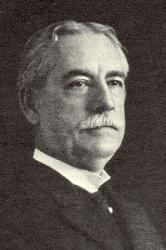Planning worship?
Check out our sister site, ZeteoSearch.org,
for 20+ additional resources related to your search.
- |
User Links
Person Results
Sebastián Cruellas
1789 - 1889 Translator of "Cuando leo en la Biblia" in Praise y Adoración One of the promoters of Spanish hymnody was Spaniard Pedro Castro y Sebastián Cruellas. He participated not only as a compiler or publisher of hymnals, but with hymns composed, translated or adapted by him.
-- from "Evangelicals in Mexico: Their Hymnody and Its Theology", p. 204
Sebastián Cruellas
Purcell James Mansfield
1889 - 1968 Person Name: P, J. Mansfield Arranger of "SALAMIS" in Redemption Songs
Purcell James Mansfield
William H. Walter
1825 - 1893 Person Name: W. H. Walter, Mus. Doc Composer of "[I think, when I read that sweet story of old]" in The Hymnal, Revised and Enlarged, as adopted by the General Convention of the Protestant Episcopal Church in the United States of America in the year of our Lord 1892
William H. Walter
J. C. Englebrecht
1844 - 1876 Composer of "[I think, when I read that sweet story of old]" in Glad Tidings in Song J C Englebrecht Germany 1844-1876
J. C. Englebrecht
Arthur Berridge
1855 - 1932 Composer of "HUDDLESTON" in The Hymnary of the United Church of Canada
Arthur Berridge
D. C. M. Hume
b. 1884 Person Name: Duncan Hume Composer of "[I think, when I read that sweet story of old]" in Hymns for Elementary Schools
D. C. M. Hume
B. C. Unseld

1843 - 1923 Composer of "[I think, when I read that sweet story of old]" in Songs Celestial Benjamin Carl Unseld, 1843-1923
Born: October 18, 1843, Shepherdstown, West Virginia.
Died: November 19, 1923.
Buried: Elmwood Cemetery, Shepherdstown, West Virginia.
After leaving school at age 14, Unseld worked as a clerk in a country store. He received his first musical instruction around age 15, from a companion who had attended a singing school. He was shown the representation of the scale in the old Carmina Sacra, and had it sung for him. At the friend’s suggestion, he got permission from his pastor to practice on the church organ. Since both boys worked, their only chance to practice was after the store closed at 9:00 p.m., and occasionally at noontime. They went to the church together and took turns, one at the keyboard and the other at the bellows.
Shortly after the Battle of Antietam in September 1862, some of which Unseld witnessed, he left home and became a bookkeeper in the general offices of a railroad in Columbia, Pennsylvania. He sang in a choir, and gained further practice reading music. He rented a melodeon and spent much time in his room improvising on it. He bought a copy of Woodbury’s Harmony and Musical Composition, and studied it as well as he could without a teacher. He accepted an invitation to play the organ in the local Methodist church, on the condition that he received the tunes early in the week so he could learn them. This was his first position as an organist.
In the spring of 1866, he entered the Musical Institute in Providence, Rhode Island, conducted by Eben Tourjée (founder of the New England Conservatory in Boston, Massachusetts, and father of Lizzie Tourjée). There he studied voice, piano, organ, and harmony. After learning of Unseld’s business experience, Dr. Tourjée made him secretary of the school; in 1867, Unseld became the first secretary of the New England Conservatory.
Starting in 1870, Unseld attended schools led by Theodore F. Seward. There he met George Webb, Lowell Mason, James McGranahan, Charles Case, and other notables in the music community. In 1874, Unseld taught at Fisk University in Nashville, Tennessee, and helped train Fisk’s Jubilee Singers for their European trip. In 1877 and 1878, he was organist and choir master at St. James’ Episcopal Church, Lancaster, Pennsylvania.
In 1879, Unseld moved to New York City, and for 15 years taught, led choirs, composed and published. In New York, his musical headquarters was the publishing house of Biglow & Main Company, where he was in almost daily contact with the popular composers and teachers of the day: Ira Sankey, Horatio Palmer, Hubert Main, Robert Lowry, et al. In 1894, Unseld moved to Cincinnati, Ohio, and worked as an editor for the Fillmore Music House. In 1898, he moved to Dayton, Ohio, and worked in a similar capacity for the Lorenz Publishing Company. He moved back to New York City in 1901, then to Hagerstown, Maryland in 1905. He and his wife Sallie were apparently living in Tennessee as of 1920. Unseld’s works include:
The Choral Standard (New York: Fillmore Brothers, 1895)
Progress in Song, with E. T. Hildebrand (Cincinnati, Ohio: The Fillmore Brothers Company)
Unseld was inducted into the Southern Gospel Music Association Hall of Fame in 2004.
Sources--
Hall, pp. 239-44
Music--
Ancyra
Euphemia
He Is Risen
Hordville
Make Haste!
Meschach
Twilight Is Falling
Unseld
Wonderful Message
--www.hymntime.com/tch
B. C. Unseld
Henry James Poole
1843 - 1897 Person Name: The Rev. Henry James Poole (1843- ) Composer of "PANSY" in The Institute Hymnal
Henry James Poole


 My Starred Hymns
My Starred Hymns


